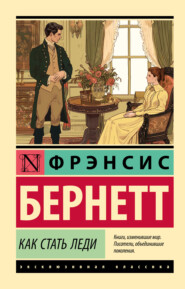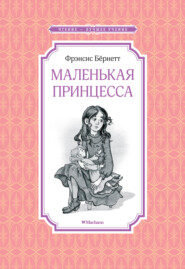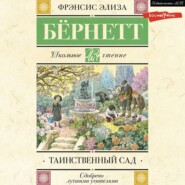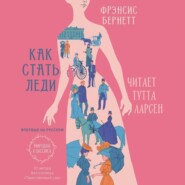По всем вопросам обращайтесь на: info@litportal.ru
(©) 2003-2024.
✖
Theo: A Sprightly Love Story
Год написания книги
2017
Настройки чтения
Размер шрифта
Высота строк
Поля
"Oh!" she said, and though the little exclamation was scarcely more than an indrawn breath, Denis heard it, and came out of his corner to take a seat at her side, and lean over the box-edge also.
"What is it, Theodora?" he asked, in a low, clear voice. "Is it Marguerite?"
She looked at him in a little fright at herself. She did not know why she had exclaimed – she scarcely knew how; but when she met his unembarrassed eyes, she began to think that possibly it might be Marguerite. Indeed, a second later, she was quite sure it had been Marguerite.
"Yes – I think so," she faltered. "Poor Marguerite! If she could only have saved him?"
"How?" he asked.
"I don't – at least I scarcely know; but I think the author ought to have made her save him, someway. If – if she could have suffered something, or sacrificed something – "
"Would she have done it if she could?" commented Denis, languidly. He had quite recovered himself by this time.
"I would have done it if I had been Marguerite," Theo half whispered.
In his surprise he forgot his self-possession. He turned upon her suddenly, and meeting her sweet, world-ignorant eyes, felt the faint, pained shock once more, and strangely enough his first thought was a disconnected one of Priscilla Gower.
"You?" he said, the next moment. "Yes, I believe you would, Theodora."
He was sure she would, after that swift glance of his, and – Well, what a happy man he would be for whom this tender young Marguerite would suffer or be sacrificed. The idea had really never occurred to him before that Theodora North was nearly a woman; but it occurred to him now with all the greater force, because he had been so oblivious to the fact before.
He sat by her side until the curtain fell; but his silent mood seemed to have come upon him again. He was very much interested in Marguerite after this, Theo thought; but it is very much to be doubted whether he could have given a clear account of what was passing before his eyes upon the stage. He did not even go into the house with them when they returned; but as he stood upon the door-step, touching his hat in a final adieu, he was keenly alive to a consciousness of Theodora North at the head of the stair-case, with billows of glistening rose-pink satin lying on the rich carpet about her feet, as she half turned toward him to bid him good-night.
Bright as the future was, it left a sense of discomfort, he could not explain why. He dismissed the carriage, and walked down the street, feeling fairly depressed in spirits.
He had, perhaps, never given the girl a thought before, unless when chance had thrown them together, and even then his thoughts had been common admiring ones. She had pleased him, and he had tried to amuse her in a careless, well-meant fashion, though he had never made fine speeches to her, as nine men out of ten would have done. He had been so used to Priscilla, that it never occurred to him that a girl so young as this one could be a woman. And, after all, his blindness had not been the result of any frivolous lack of thought. A sharp experience had made him as thoroughly a man of the world as a man may be; but it had not made him callous or indifferent to the beauties of life. No one would ever have called him emotional, or prone to enthusiasms of a weak kind, and yet he was by no means hard of heart. He had quiet fancies of his own about people and things, and many of these reticent, rarely-expressed ideas were reverent, chivalrous ones of women. The opposing force of a whole world could never have shaken his faith in Priscilla Gower, or touched his respect for her; but though, perhaps, he had never understood it so, he had never felt very enthusiastically concerning her. Truly, Priscilla Gower and enthusiasm were not in accordance with each other. Chance had thrown them together when both were very young, and propinquity did the rest. Propinquity is the strongest of agents in a love affair, and in Denis Oglethorpe's love affair, propinquity had accomplished what nothing else would have been likely to have done. The desperate young scribbler of twenty years had been the lodger of the elder Miss Gower, and Priscilla, aged seventeen, had brought in his frugal dinners to him, and receipted his modest bills on their weekly payment.
Priscilla at seventeen, silent, practical, grave and handsome, had, perhaps, softened unconsciously at the sight of his often pale face – he worked so hard and so far into the night; when at length they became friends, Priscilla gravely, and without any hesitation, volunteered to help him. She could copy well and clearly, and he could come into her aunt's room – it would save fires. So she helped him calmly and decorously, bending her almost austerely-handsome young head over his papers for hours on the long winter nights. It is easy to guess how the matter terminated. If ever he won success he determined to give it to Priscilla – and so he told her. He had never wavered in his faith for a second since, though he had encountered many beautiful and womanly women. He had worked steadily for her sake, and shielded her from every care that it lay within his power to lighten. He was not old Miss Elizabeth Gower's lodger now – he was her niece's husband in perspective. He was to marry Priscilla Gower in eight months. This was why Theodora North, in glistening rose-pink satin, sent him home confronting a suddenly-raised spirit of pain. Twice, in one night, he had found himself feeling toward Theodora North as he had never felt toward Priscilla Gower in his life. Twice, in one night, he had turned his eyes upon this girl of sixteen, and suffered a sudden shock of enthusiasm, or something like it. He was startled and discomfited. She had no right to win such admiration from him – he had no right to give it.
But as his walk in the night-air cooled him, it cooled his ardor of self-examination somewhat. His discontent was modified by the time he reached his own door, and took his latch-key out of his pocket. The face that had looked down upon him beneath the light at the head of the stair-case, had faded into less striking color – it was only a girl's face again. He was on better terms with himself, and his weakness seemed less formidable.
"I will keep my promise to-morrow," he said, "and Priscilla shall go with us. Poor Priscilla! – poor girl! Rose-pink satin would scarcely be in good taste in Broome street."
The promise he had made was nothing more than a ratification of the old one. They were to see the lions together, and Priscilla was to guide them.
And when the morrow came, he found it, after all, safe enough, and an easy enough matter, to tuck Theodora's small, gloved hand under his arm, when they set out on their tour of investigation and discovery. The girl was pretty enough, too, in her soft, black merino – her "best" dress in Downport – but she was not dazzling. The little round, black-plumed hat was becoming also; but in his now more prosaic mood, he could stand that, too, pretty as it was in an innocent, unconsciously-coquettish way. Theo was never coquettish herself in the slightest degree. She was not world-wise enough for that yet. But she was quite exhilarating to-day; so glad to be out even in the London fog of November; so glad to be taken lion-hunting; so delighted with the shops and their gay windows; so ready to let her young tongue run on in a gay stream of chatter, altogether so bright, and pretty, and joyous, that her escort was fain to be delighted too.
"Guess where we are going to first?" said he. (He had not before openly spoken of Priscilla to her.)
She glanced up into his face, brightly. She remembered what he had told her about his lady friend.
"I don't exactly know the name of the place," she said; "but I think I know the name of the person we are going to see."
"Do you?" was his reply. "Then say it to me – let me hear it."
"Miss Gower," she answered, softly, in a pretty reverence for him. "Miss Priscilla Gower."
He nodded, slightly, with a curious mixture of expressions in his face.
"Yes," he said. "Miss Gower, or rather Miss Priscilla Gower, as you say. Number twenty-three, Broome street; and Broome street is not a fashionable locality, my dear Theodora."
"Isn't it?" queried Theo. "Why not?"
He shrugged his shoulders.
"Ask Lady Throckmorton," he said. "But do you know who Miss Priscilla Gower is, Theodora?"
Her bright eyes crept up to his, half-timidly; but she said nothing, so he continued.
"Miss Priscilla Gower is the young lady to whom I am to be married next July. Did you know that?"
"Yes," answered Theo, looking actually pleased, and blushing beautifully as he looked down at her. "But I am very much obliged to you for telling me, Mr. Oglethorpe."
"Why?" he asked. It was very preposterous, that even though his mood was so prosaic and paternal a one, he was absurdly, vacantly sensible of feeling some uneasiness at the brightness of her upturned face. For pity's sake, why was it that he was impelled to such a puerile weakness – such a vanity, as he sternly called it.
"Because," returned Theo, "it makes me feel as if – I mean it makes me happy to think you trust me enough to tell me about what has made you happy. I hope – oh! I do hope Miss Priscilla Gower will like me."
He had been looking straight before him while she spoke, but this brought his eyes to hers again, and to her face – bright, appealing, upturned – and he found himself absolutely obliged to steady himself with a jesting speech.
"My dearest Theodora," he said. "Miss Priscilla Gower could not possibly help it."
Comforting as this assurance was to her, it must be confessed she found herself somewhat over-awed on reaching Broome street, and being taken into the tiny, dwarfed-looking parlor of number twenty-three; Miss Elizabeth Gower herself was there, in her company-cap, and long-cherished company-dress of snuff-colored satin. There were not many shades of difference in either her snuff-colored gown, or her snuff-colored skin, or her neat, snuff-colored false-front, Theo fancied, but she was not at all afraid of her. She was a trifle afraid of Miss Priscilla. Miss Priscilla was sitting at the table reading when they entered, and as she rose to greet them, holding her book in one hand, the thought entered Theo's mind that she could comprehend dimly why Lady Throckmorton disliked her, and thought her unsuited to Denis Oglethorpe. There was an absence of anything girl-like in her fine, ivory-pale face, somehow, though it was a young face and a handsome face, at whose fine lines and clear contour even a connoisseur could not have caviled. Its long almond-shaped, agate-gray eyes, black-fringed and lustrous as they were, still were silent eyes – they did not speak even to Denis Oglethorpe.
"I am glad you have come," she said, simply, extending her hand in acknowledgment of Denis's introduction. The quietness of this greeting speech was a fair sample of all her manner. It would have been sheerly impossible to expect anything like effusiveness from Priscilla Gower. The most sanguine and empty-headed of mortals would never have looked for it in her. She was constitutionally unenthusiastic, if such a thing may be.
But she was gravely curious in this case concerning Theodora North. The fact that Denis had spoken of her admiringly was sufficient to arouse in her mind an interest in this young creature, who was at once, and so inconsistently, beautiful, timid, and regal, without consciousness.
"Three years more will make her something wonderful, as far as beauty is concerned," he had said; and, accordingly, she had felt some slight pleasure in the anticipation of seeing her.
Yet Theo had some faint misgivings during the day as to whether Miss Priscilla Gower would like her or not. She was at first even inclined to fear that she would not, being so very handsome, and grave, and womanly. But toward the end of their journeying together, she felt more hopeful. Reticent as she was, Priscilla Gower was a very charming young person. She talked well, and with much clear, calm sense; she laughed musically when she laughed at all, and could make very telling, caustic speeches when occasion required; but still it was singular what a wide difference the difference of six years made in the two girls. As Lady Throckmorton had said, it was not a matter of age. At twenty-two Theodora North would overflow with youth as joyously as she did now at seventeen; at seventeen Priscilla Gower had assisted her maiden aunt's lodger to copy his manuscript with as mature a gravity as she would have displayed to-day.
"I hope," said Theodora, when, after their sight-seeing was over, she stood on the pavement before the door in Broome street, her nice little hand on Denis Oglethorpe's arm, "I hope you will let me come to see you again, Miss Gower."
Priscilla, standing upon the door-step, smiled down on her blooming girl's face, a smile that was a little like moonlight. All Priscilla's smiles were like moonlight. Theo's had a delicious glow of the sun.
"Yes," she said, in her practical manner. "It will please me very much to see you, Miss Theodora. Come as often as you can spare the time."
She watched the two as they walked down the street together, Theo's black feather glossy in the gaslight, as it drooped its long end against Oglethorpe's coat, and as she watched them, she noticed even this trifle of the feather, and the trifling fact that though Theo was almost regal in girlish height, she was not much taller than her companion's shoulder. It was strange, she thought afterward, that she should have done so; but even while thinking it strange in the afterward that came to her, she remembered it all as distinctly as ever, and knew that to the last day of her life she would never quite forget the quiet of the narrow, dreary street, the yellow light of the gas-lamps, and the two figures walking away into the shadow, with their backs toward her, the girl holding Denis Oglethorpe's arm, and the glossy feather in her black hat drooping its tip upon his shoulder.
CHAPTER IV
THEO'S DIARY
Up-stairs, in a sacred corner of the chamber Lady Throckmorton had apportioned to her, Theodora North kept her diary. Not a solid, long-winded diary, full of creditable reflections upon the day's events, but, on the contrary, a harmless little book enough – a pretty little book, bound in pink and gold, and much ornamented about the corners, and greatly embellished with filagree clasps. Lady Throckmorton had given it to her because she admired it, and, in a very natural enthusiasm, she had made a diary of it. And here are the entries first recorded in its gilt-edged pages:
December 7. – Mr. Oglethorpe was so kind as to remember his promise about showing me the lions. Enjoyed myself very much. Miss Priscilla Gower went with us. She is very dignified, or something; but I think I like her. I am sure I like her, so I will go to see her again. I wonder how it is she reminds me of Pamela without being like Pamela at all. Poor Pam always so sharp in her ways, and I do not think Miss Gower ever could speak sharply at all. And yet she reminds me of Pam.
December 14. – Went to the theatre again with Lady Throckmorton and Mr. Oglethorpe. I wonder if the rose-pink satin is not becoming to me? I thought it was; but before I went up-stairs to dress, Mr. Oglethorpe said to me, "Don't put on the rose-pink satin, Theodora." I am sorry that he does not think it is pretty. Wore a thin, white-muslin dress, and dear, dearest old Pamela's beautiful sapphires. The muslin had a long train.

















